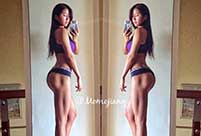

 |
| A photo shows the household register of China. [Photo: cctv.com] |
There have been heated discussions over a planned points-based residence registration system in the Chinese capital that accommodates over eight million non-locals.
The move comes as the capital steps up measures to control the size of the population in central areas.
The draft regulation issued this week is designed to help migrants to claim permanent Beijing resident permits or "hukou" based on a points system.
It brings hope for Beijing drifters like Liu Yue who appears to have everything - a good job and a cozy home in the city - but who has no hukou.
But For the 29-year-old, the bigger concern is her daughter's future.
"Without a hukou, she would not be able to attend high school in Beijing and would face far fiercer competition in the college entrance examination back in my home town. That's what worries me most."
This latest move in Beijing is one of several recent steps taken to reform China's hukou system, which has divided the nation into rural and urban populations since the 1950s and has been blamed for preventing migrants from accessing public services in the cities they work.
According to the draft regulation, applicants should be under 45 years old, have a temporary residence permit and have paid social security premiums in the city for at least seven consecutive years.
And they shouldn't have a criminal record or have violated the family-planning policy.
Applicants who meet these basic requirements can accrue points based on their educational background, employment and property.
The number of points needed will be determined on a yearly basis and according to the changes in the city's population.
But debate erupted as soon as the draft legislation was released. The most complained about aspect is the age threshold.
However, Yang Hongshan from Renmin University of China, said this would determine whether the city can develop in a sustainable way in the future.
"The age limit shows which group of people the new policy will favor. It's widely recognized in the world that the age of 44 divides young and middle-aged groups and there is no doubt that younger people have greater potential and will make greater contribution to the city in the future."
Apart from middle and more senior age groups, the rules won't benefit those working in low-end sectors, either.
Li Caiyun, a newspaper seller, is among them.
"There is nothing different for us before and after the policy comes out. It's more likely to help those hukou pursuers who have better jobs and backgrounds."
Wang Liejun with the Development Research Center of the State Council, said the policy is not expected to add to the pressure on the city's population which has already quite intense.
"The population control, at present, is more urgent than any other problem the municipal government of Beijing has to address. So, there won't be significant steps taken to ease the city's settling-in restrictions as the policymaker is struggling to attain a balance between the population size and the basic wellbeing of the citizens."
Similar points systems are already in place in China's first tier cities such as Shanghai and Tianjin.
Last year, Shanghai accepted just over 10,000 new citizens while the number in Tianjian was around 6,000.
Beijing is striving to cap its population at 23 million by 2020.
Its current permanent population exceeds 20 million, about two and half times that of London and New York.
But Gao Wenshu at the Chinese Academy of Social Sciences said although the new policy will help optimize Beijing's population structure, there is still room for improvement.
"I think it would be more reasonable if the age limit of 45 years old could be broadened. Second, the requirement for paying social security for 7 consecutive years will rule out a large number of applicants, as the payment may halt due to job transfer to another city and overseas education. It would be more reasonable if we change it into 7 cumulative years."
The draft has now been published for public consulatation.
It will be reviewed by the authorities before being put into effect.
 Chinese beauty with sexiest bottom
Chinese beauty with sexiest bottom All-star Carnival held in Beijing
All-star Carnival held in Beijing Charming female bodybuilders of Chengdu University
Charming female bodybuilders of Chengdu University Polish sports stars strip off for risqué calendar
Polish sports stars strip off for risqué calendar Spectacular aerial photos of the Three Gorges
Spectacular aerial photos of the Three Gorges Contestants of Mrs. Globe pose for photo in Shenzhen
Contestants of Mrs. Globe pose for photo in Shenzhen
 Bikini models attend hot pot banquet in Hefei
Bikini models attend hot pot banquet in Hefei J-10B fighters with homegrown engine in test fligh
J-10B fighters with homegrown engine in test fligh Photos of U.S. Navy intruding in South China Sea released
Photos of U.S. Navy intruding in South China Sea released Top 20 hottest women in the world in 2014
Top 20 hottest women in the world in 2014 Top 10 hardest languages to learn
Top 10 hardest languages to learn 10 Chinese female stars with most beautiful faces
10 Chinese female stars with most beautiful faces China’s Top 10 Unique Bridges, Highways and Roads
China’s Top 10 Unique Bridges, Highways and RoadsDay|Week